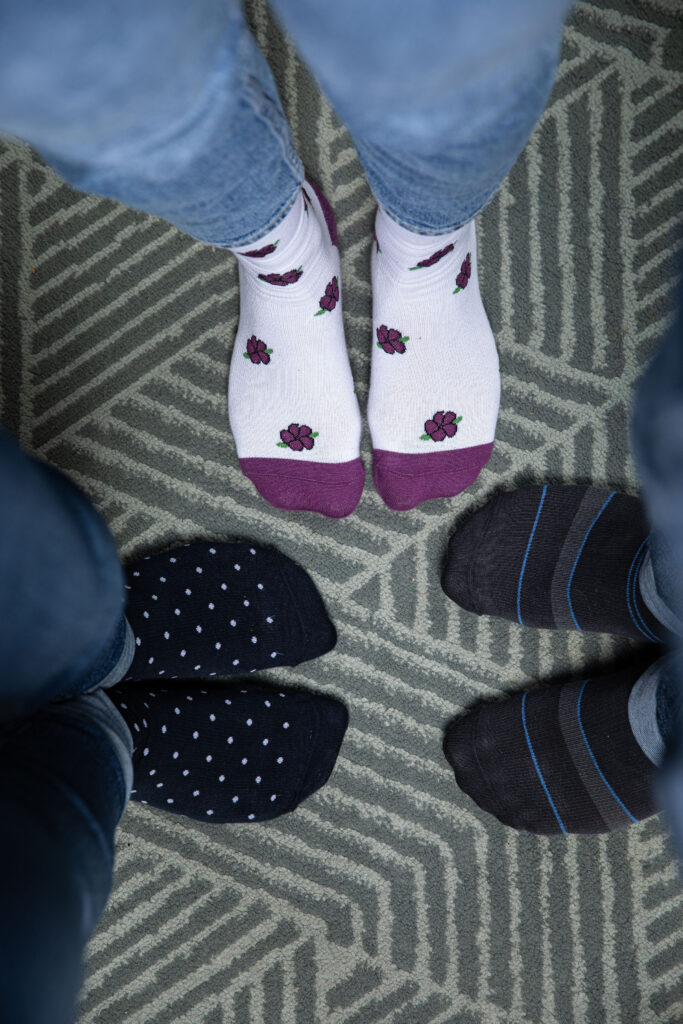Compression Stockings: What is the NHS Advice?
Compression stockings have emerged as a valuable tool in maintaining leg health. Experts in the field have been vocal about their efficacy. These specialised medical stockings or socks are designed to improve blood circulation in the legs by exerting graduated pressure. In this blog post, we’ll delve into the NHS’ guidance on compression stockings and how medical circulation socks can benefit different aspects of life.
What are Compression Stockings?
At their core, compression stockings (sometimes known as medical socks) are tight-fitting, stretchy socks or stockings that exert pressure on your legs. They are designed to provide graduated compression, with the highest pressure at the ankle and gradually decreasing as they move up the leg. This encourages blood flow and reduces swelling.
You may be prescribed compression socks by your doctor if you have a condition that causes poor blood flow in your legs, for example, varicose veins or lymphoedema.
Taking Care of Your Compression Stockings
To ensure compression socks continue to provide optimal benefits, it’s crucial to follow essential care guidelines. The Wrightington, Wigan and Leigh Hospitals NHS Foundation Trust (WWL) advises the following care procedures:
- Regular Washing: Wash your medical circulation socks at least once a week following the washing guidelines
- Avoid Certain Chemicals: Avoid detergents or fabric softeners which may irritate your skin and damage the stocking. If in doubt, a warm cycle with a gentle non-bio detergent should be fine.
Further, the Sandwell and West Birmingham NHS Trust advises that users should bear in mind the following:
- Detergent: Wash inside out in warm water with a non-biological washing detergent. Do not use fabric conditioner
- Washing Machines: Compression stockings can be washed in the washing machine on a delicate cycle at 40°C
Proper care and maintenance can help maintain the longevity and effectiveness of your graduated medical compression socks, ensuring they continue to provide the necessary support and relief.
Reducing the Risk of DVT during Air Travel
One area where compression stockings shine is during air travel, where the risk of Deep Vein Thrombosis (DVT) is a notable concern. The Royal College of Obstetricians and Gynaecologists (ROCG) advises that women who are pregnant women and those up to six weeks after giving birth have a higher risk of developing DVT compared with women who are not pregnant.
There is an increased risk of DVT when flying. This is due to sitting for a prolonged length of time. The risk of a DVT increases with the length of the flight.
To minimise the risk of DVT on medium to long haul flights, the ROCG advises wearing graduated elastic compression stockings. However, it is important to note that your doctor or midwife will need to provide the correct size and type for you.
Compression Stockings for Pregnancy
Pregnancy is a transformative journey that brings about numerous physical changes, including increased strain on the circulatory system. According to Thrombosis UK, during pregnancy there is a dramatic reduction in the speed of blood flow in your veins. The reduction in blood flow becomes obvious in pregnancy by 16 weeks. Further, it is most sluggish closer to full-term as your body gets ready for the actual delivery. The blood flow does not return to normal until six weeks after delivery. This sluggish flow in the veins is why many women get some swelling of the legs when they are pregnant. This reduction in blood flow and the increased clotting tendency while pregnant can result in a clot in the leg. Medical socks for swollen feet can be a great choice for pregnant women.
Thrombosis UK lists compression socks as a treatment for DVT. The charity states that graduated elastic compression stockings can help to improve blood flow and reduce swelling. As they help the swelling go down, they are therefore useful in treating a blood clot.
It’s important to note that it is advisable to consult with your doctor before using compression socks when pregnant. They can provide guidance on the appropriate compression level and size for your specific needs.
Compression stockings are a valuable tool for maintaining healthy circulation, reducing swelling, and minimising the risk of DVT. Whether you’re a frequent traveller or an expectant mother, the socks offer support and relief for various leg-related issues.
Various NHS Hospital Trusts also stress the importance of proper care to ensure that compression stockings remain effective. Regular washing, gentle handling, and replacing them when necessary are essential practices for maximising their benefits.
